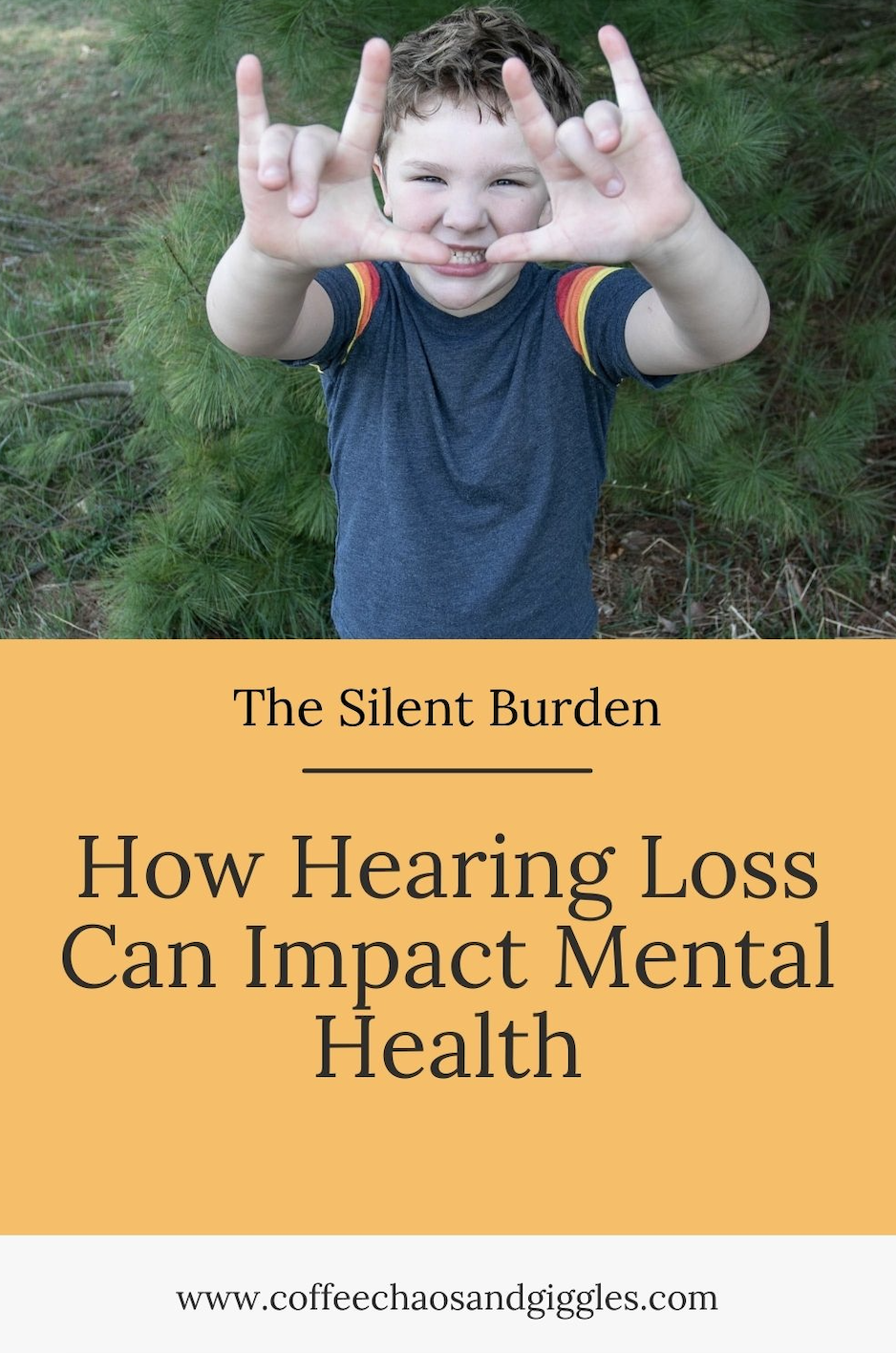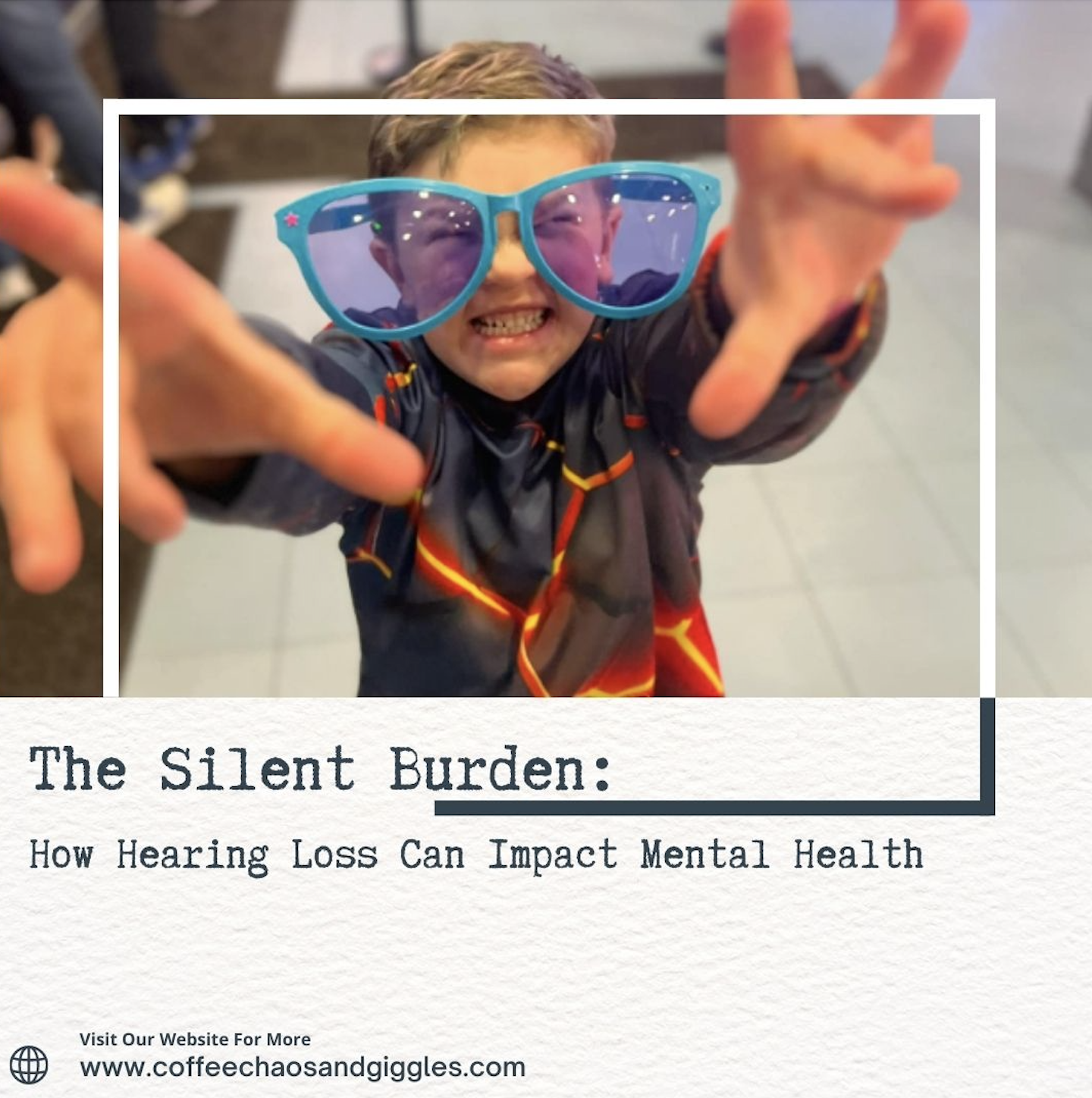The Silent Burden: How Hearing Loss Can Impact Mental Health
In our fast-paced and noisy world, we often take our ability to hear for granted. However, for millions of people around the globe, hearing loss is a reality that can significantly impact their lives. While the physical implications of hearing loss are well-known, its effects on mental health are often overlooked. In this blog post, we will explore the intricate relationship between hearing loss and mental health, shedding light on the silent burden that individuals with hearing loss carry.

- Isolation and Loneliness: Hearing loss can lead to social isolation and profound feelings of loneliness. Communication becomes a challenge, making it difficult for individuals with hearing loss to engage in conversations, both in personal and professional settings. As a result, they may withdraw from social activities and relationships, which can lead to feelings of loneliness, depression, and anxiety.
- Communication Difficulties: Effective communication is vital for maintaining healthy relationships and participating fully in society. With hearing loss, individuals often struggle to understand conversations, especially in noisy environments. This difficulty can lead to frustration, stress, and a loss of confidence in social situations. Over time, these communication challenges can erode self-esteem and contribute to social anxiety.
- Cognitive Decline: Recent studies have shown a potential link between untreated hearing loss and cognitive decline, including an increased risk of developing conditions such as dementia and Alzheimer’s disease. The cognitive load placed on individuals with hearing loss to constantly decode and interpret sounds can overtax their cognitive resources, leaving them mentally exhausted and more susceptible to cognitive decline.
- Emotional Distress: Living with hearing loss can be emotionally distressing. The constant struggle to hear and understand can lead to heightened levels of stress, irritability, and frustration. These emotional burdens can affect overall mental well-being, contributing to mood disorders such as depression and anxiety. Moreover, the feeling of being misunderstood or ignored by others due to their hearing loss can further exacerbate emotional distress.
- Decreased Quality of Life: Hearing loss can significantly impact an individual’s overall quality of life. It can limit their ability to enjoy simple pleasures, such as engaging in conversations with loved ones, appreciating music, or participating in social gatherings. The loss of these meaningful experiences can lead to feelings of sadness, isolation, and a reduced sense of fulfillment in life.

Hearing loss is not solely a physical impairment; it has far-reaching consequences for an individual’s mental health. The emotional toll, isolation, communication difficulties, and potential cognitive decline associated with hearing loss can greatly impact one’s overall well-being. It is essential to raise awareness about the psychological impact of hearing loss, encourage early intervention, and provide support and resources to individuals living with hearing loss. By recognizing the silent burden and promoting inclusivity, we can help mitigate the mental health challenges faced by those with hearing loss and create a more empathetic and understanding society.




